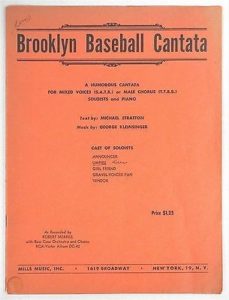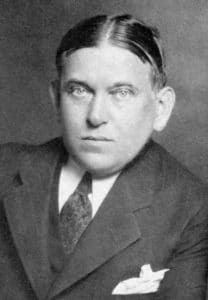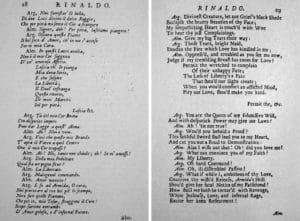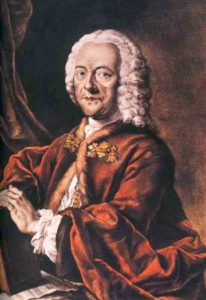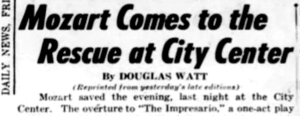Miss Attribution of 1751
By Mark Schubin
On Site Opera’s production of Lesson Plan was made possible thanks to your support. After all, “Of all the noises known to man, opera is the most expensive.”
That quotation is most-often attributed to the 17th-century French playwright Jean-Baptiste Poquelin, better known as Molière (right, in a portrait by Pierre Mignard around 1658). It’s extremely unlikely that he’s the source (more on that later). Misattribution is not unknown in the opera world.
Lesson Plan is an expanded version of Der Schulmeister [The Schoolmaster] originally written as a comic cantata. Roughly two centuries later, George Kleinsinger wrote the music for another comic cantata, soon recorded by Metropolitan Opera star Robert Merrill. In 2014, for the 75th anniversary of the National Baseball Hall of Fame, that Brooklyn Baseball Cantata was performed in Cooperstown, NY, by members of the Young Artists Program of the Glimmerglass Festival, as part of a program that included a talk on the connections between baseball and opera.
The Baseball Hall of Fame is in Cooperstown because of a misattribution of the invention of the sport to Abner Doubleday in Elihu Phinney’s cow pasture there. And the talk that accompanied the cantata referred to another misattributed quotation. “Opera in English makes about as much sense as baseball in Italian,” supposedly by H. L. Mencken (right). At least that one was close. The actual wording was, “Opera in English is, in the main, just about as sensible a plea as baseball in Italian,” and the actual creator was Mencken’s partner in The American Mercury magazine (where the sentence appeared in the February 1926 issue), George Jean Nathan.

There are also advantages to performing in English an opera originally written in another language. Handel’s Rinaldo was the first opera in Italian composed specifically for an English-speaking audience. To accommodate those not fluent in Italian, Handel provided dual-language libretti (right) and the candles needed to read them, revenue streams added to ticket sales.
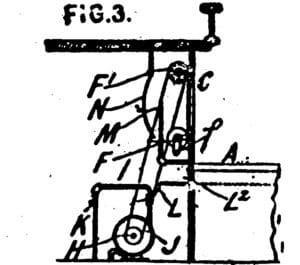
Who wrote Der Schulmeister? For many years, it was attributed to Georg Philipp Telemann (shown at right in 1750); it even has a number in the Telemann-Werke-Verzeichnis [Telemann Works Catalog], TWV 20:57. Doubts were raised about the attribution in 1981, and in 1995 musicologists accepted that it was actually written by an otherwise little known organist and composer named Christoph Ludwig Fehre. The full title of the piece is Der Schulmeister in der Singschule [The Schoolmaster in the Singing School], and it was written in honor of the 50th anniversary of Fehre’s uncle and teacher Johann Christian Gerstner’s career.
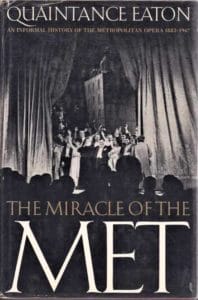
Twelve years earlier, New York City Opera presented a double bill. The second opera was The Impresario. The first was The School for Wives, composed by Rolf Liebermann, based on Molière’s play of the same name; Poquelin was even a role.
Reviewing the evening in the Daily News, Douglas Watt noted that Mozart’s title character got the audience to laugh when he “observed that opera ‘is the most expensive noise known to man,’” and then he offered details of the performance of the Molière-based opera. Was that the source of the misattribution? Either way, Lesson Plan is a newly expanded version of Der Schulmeister, so you may attribute the fun to On Site Opera.

